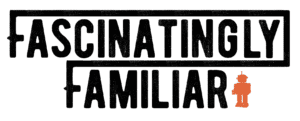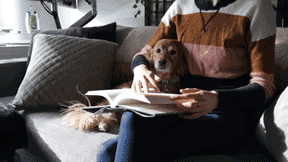
When was the last time you took an afternoon to focus purely on your hobbies? It feels tough to defend spending time on them when we live in a society that pushes productivity and outcomes over personal interests and relaxation. Setting goals around hobbies can help push back on those demands.
Our very own Cassidy Welter shares her personal journey on turning her reading hobby into #goals

My books, just some of my books.
“In 2018, I decided to set a goal for myself to read 100 books each year, which was easy to meet. Starting in 2020, I upped my goal to 125 and I’m already going strong.”
I get asked how many books I read fairly often. “Wow” or “That’s insane… I don’t think I’ve sat down and read a book since high school” are typically the kind of responses that I get to whatever number I’ve just thrown out. The implicit statement underneath the “That’s amazing” or “I don’t even know the names of that many books” really comes down to the question of why. Why do I spend hours of my time and a chunk of my budget to this? What’s the point?
The point is because I can, I want to, and it matters, at least to me. Time is a privileged commodity and I definitely don’t have any more of it than anyone else in my position. The act of sitting and reading feels radical in a capitalist society that demands every minute be productive. Being able to sit and devote time to reading can make people feel anxious about putting off whatever else they could be doing with that hour.
Hobbies in general, whether you love to paint, run, grow succulents or write, can feel hard to justify. Using time to indulge in a relaxing activity purely because you want to is frowned upon when you could be using that time to work more or monetizing your enjoyment.
Reading any number of books, whether it’s 1, 10, or 100, means the already precious commodity of time is being pulled in even more directions. But I know for sure that reading this much has made me better at my job, a more informed citizen, and I like to think that it’s made me a better person as well. I see spending time on my hobby as an important part of my life and I can’t imagine giving it up.

Winnie, my reading companion.
“Hobbies exist because we get something positive out of them. It feels like it’s gotten harder to defend a hobby in the world of 2020.”
I’ve always been a big reader, but it wasn’t until 2018 that I consciously decided to turn my hobby into a goal. Setting this goal for myself to read at least 125 books has given me a way to prioritize what I care about and to consciously make time for myself. Each year, I try to read 50/50 fiction and non-fiction, with an emphasis on writers that are people of color and that identify as female or nonbinary. Setting these mini-goals help me to make thoughtful choices about what I choose to read and to balance learning about new topics, diving deeper into topics I have some background in, and to read for fun.
Crafting my own set of goals around my hobby didn’t change the way I felt about it… I still love reading and it never feels like a chore. It didn’t take the pleasure out of reading, but it pushes me out of my comfort zone, to take my hobby to the next level and to quantify it in a way that moves me forward.

The “literal” rainbow.
This year, I decided to step out of my comfort zone and join the Instagram community for readers, called “bookstagram”. I share photos, reviews, recommendations and posts about my reading journey towards meeting my goals, and to share in celebrating others’ goals for their reading. It’s been really empowering to take on a somewhat public and visual forum for sharing my goals and honoring them.
Hobbies exist because we get something positive out of them. I see setting goals for my hobby as a way to amplify the benefits I get from reading. These goals add to my enjoyment of my hobby, rather than taking away from it. There are costs to it—yes, I could be spending more time with my partner or friends, or I could use the money I spend on books on something else. I get it when people wonder “why”—but my response is always “why not?”
Read more articles from the Fascinatingly Familiar series, here.

